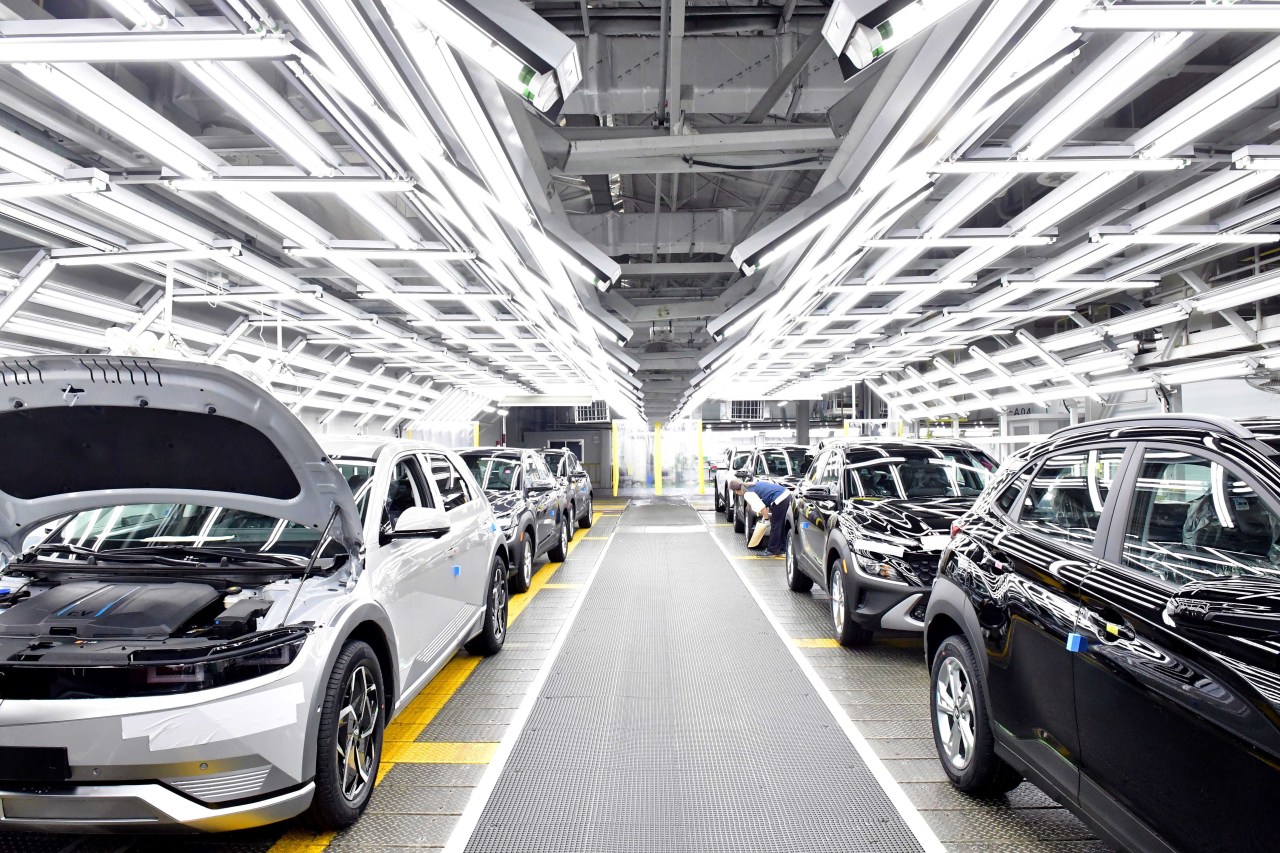 |
EV production line for Hyundai Motor located in Ulsan. (Yonhap) |
The global market share of Korean-made battery electric vehicles (BEVs) and lithium-ion batteries shrank last year with greater competition from Chinese and German makers, according to a report released on Wednesday by a major business lobby group.
Based on statistics from the International Trade Center, the Federation of Korean Industries (FKI) analyzed the changing landscape of the global BEV and lithium-ion battery industry which is growing at over 20 percent on annual average.
BEVs refer to all-electric vehicles that run on batteries, and lithium-ion batteries are used in smartphones, laptops or electric cars.
Of the world’s five largest BEV exporting countries, the global market shares of China and Germany grew 9.5 percentage points and 3.8 percentage points, respectively, from 2020.
Those of South Korea, Belgium and the US dipped 0.8 percentage point, 2.1 percentage points and 8.5 percentage points, respectively.
Carmakers in China including Tesla’s factory in Shanghai, SAIC Motor Corp. and BYD Auto Co. saw their exports to the European Union jump 513.9 percent last year.
The EU is the world’s largest importer of BEVs, where Chinese companies’ market share rose from 4.2 percent in 2020 to 15.9 percent last year.
As for the world’s five biggest exporters of lithium-ion batteries, global market shares of China, Poland, Germany and Hungary grew 2.9 percentage points, 1.8 percentage points, 1.2 percentage points and 0.3 percentage point, respectively.
South Korea’s, however, dipped by 2 percentage points.
The combined global EV battery market shares of Chinese battery companies such as CATL, BYD and CALB grew from 38.4 percent in 2020 to 48.7 percent last year.
The combined market shares of three South Korean battery makers – LG Energy Solution, Samsung SDI and SK On – shrank from 34.7 percent in 2020 to 30.4 percent last year.
Japan’s market share dropped from 18.4 percent to 12.2 percent in the same period.
As for Chinese battery makers, they sold more at home than overseas.
Therefore, in the global market excluding China, South Korean-made batteries kept their top position with a global market share of 57 percent last year, up from 52.4 percent in 2020.
China has positioned itself as the world’s top BEV maker thanks to its rich reserve of raw materials and the Chinese government’s financial support of battery companies, according to Kim Bong-man, head of the FKI’s international division.
Kim urged the South Korean government to strengthen cooperation with the US, which has been reestablishing the battery supply chain since last year.
Mentioning how South Korean companies are seeking closer cooperation with emerging economies by building an EV battery factory in Indonesia and setting up a joint venture with a Chinese mining company for a stable supply of raw materials, Kim added that the Seoul government should increase support.
By Kim So-hyun (
sophie@heraldcorp.com)








